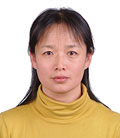Reduce dry gas and coke with a more flexible FCC technology
To meet increasingly stringent specifications for cleaner gasoline and to produce more clean fluid catalytic cracking (FCC) naphtha with lower olefins, a novel FCC technologya for maximizing isoparaffins was developed in the late 1990s. The technology’s principal is based on the formation and conversion of olefins in two different reaction zones.
IP: 10.1.96.160
This is a preview of our premium content. Thank you for your interest—please
log in or
subscribe to read the full article.
The Authors
Gong, J. - SINOPEC Research Institute of Petroleum Processing (RIPP), Beijing, China
J. Gong is a full Professor and the Deputy Director of the catalytic cracking process research department for the SINOPEC Research Institute of Petroleum Processing (RIPP). He has more than 17 yr of experience in developing new FCC processes to meet increasingly stringent gasoline specifications and to adjust product slates to meet market demands. Dr. Gong has published 36 papers, holds 87 patents, and was awarded the SINOPEC Science and Technology Progress Award in 2002, 2007, 2010, 2013 and 2016. Dr. Gong received his BS degree in chemical engineering from East China University of Science and Technology, and his PhD in chemical processing from RIPP in Beijing, China.
Xu, Y. - SINOPEC Research Institute of Petroleum Processing (RIPP), Beijing, China
Youhao Xu is the Chief Expert of Sinopec. Dr. Xu is the inventor of the proprietary DTFB. He has more than 200 patents and has published 110 papers.
Zhang, J. - SINOPEC Research Institute of Petroleum Processing (RIPP), Beijing, China
J. Zhang is a senior expert for SINOPEC and Deputy Chief Engineer of the SINOPEC Research Institute of Petroleum Processing (RIPP). Mr. Zhang has 35 yr of experience in the research and development and applications of technologies for petroleum refining, especially in FCC technology. He received his BS degree in petroleum refining from the Fushun Petroleum Institute in 1983. Mr. Zhang was awarded the second prize of National Scientific and Technological Progress three times, the first and second prize of SINOPEC Technological Progress eight times, and the Excellence Award of Chinese Patent three times. He holds 72 Chinese patents, 14 international patents and has published 31 papers.
Chang, X. - SINOPEC Research Institute of Petroleum Processing (RIPP), Bejing, China
X. Chang is a full Professor of the processing development department at the SINOPEC Research Institute of Petroleum Processing (RIPP). He has more than 20 yr of experience in designing FCC processes packages. Professor Chang has published eight papers and holds 23 patents. He was awarded the SINOPEC Science and Technology Progress Award in 2001, 2002, 2013 and 2016. He earned his BS degree in chemical engineering from Tsinghua University, and received his MS degree in chemical process from RIPP in Beijing, China.
Wei, X. - SINOPEC Research Institute of Petroleum Processing (RIPP), Beijing, China
X. Wei is a full Professor in the catalytic cracking process department at the SINOPEC Research Institute of Petroleum Processing (RIPP). Her main research fields include the research and development of fundamental theory and technology for fluid catalytic cracking processes. She has applied for 115 patents (103 authorized) and published more than 30 scientific papers. Dr. Wei earned her PhD degree in chemical engineering from RIPP.
Tang, J. - SINOPEC Research Institute of Petroleum Processing (RIPP), Beijing, China
J. Tang is a Senior Engineer and specializes in developing new technologies for catalytic cracking process at the SINOPEC Research Institute of Petroleum Processing (RIPP). She has more than 14 yr of experience in developing new FCC processes and FCC trouble-shooting. Dr. Tang has published 18 papers and holds 27 patents. She was awarded the SINOPEC Science and Technology Progress Award in 2016. Dr. Tang received her MS degree and PhD in chemical processing from RIPP in Beijing, China.
Related Articles
From the Archive












Comments